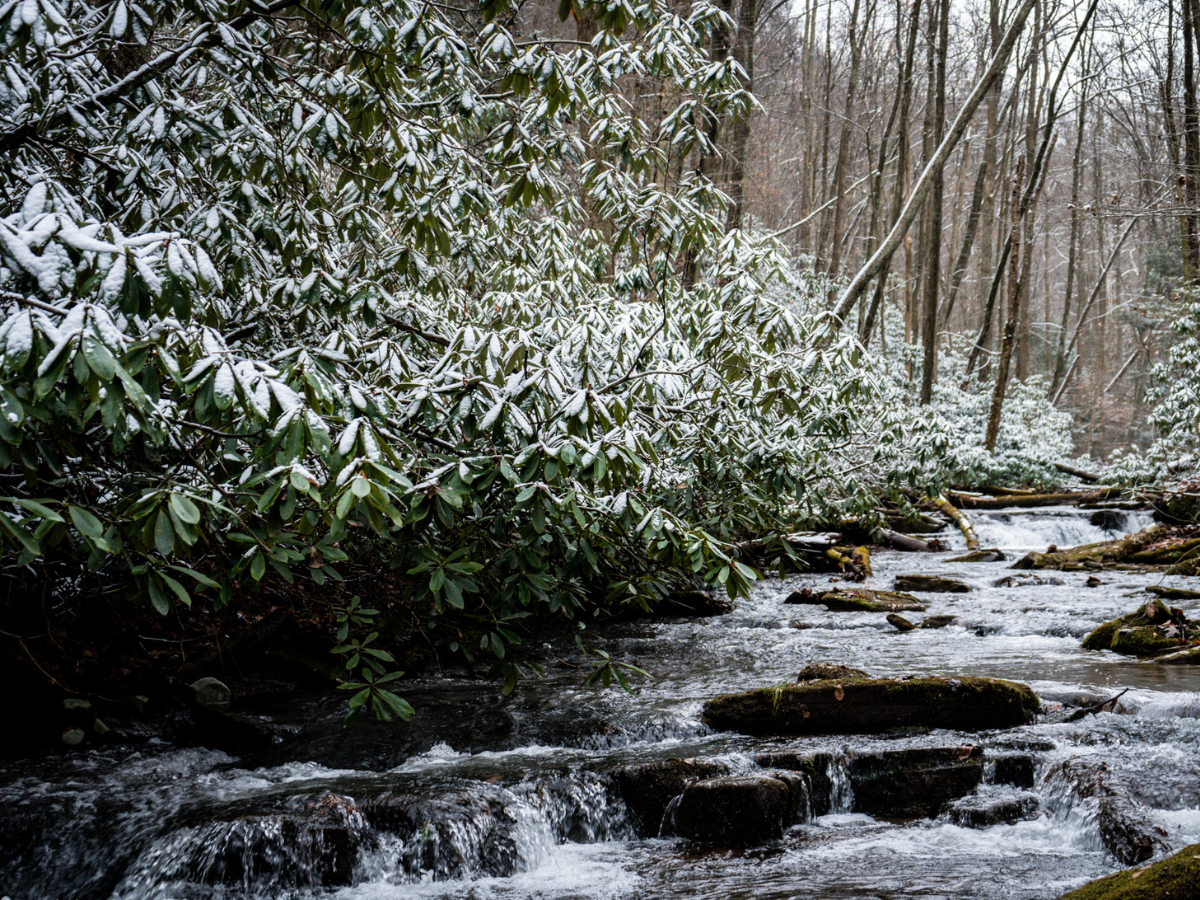(Photo by Olivia Miller)
By Susan Rosenblum and Olivia Miller
Acid mine drainage is a devastating environmental issue with which the citizens and environmental organizations in the state of West Virginia are, unfortunately, all too familiar. On Dec. 29 promising news for acid mine drainage treatment efforts was received with President Joe Biden signing into law a provision known as the Safeguarding Treatment for the Restoration of Ecosystems from Abandoned Mines (STREAM) Act—rounding out 2022 on a positive note for combating acid mine drainage in West Virginia.
The STREAM Act authorizes states and tribes to allot up to 30% of their annual abandoned mine land funding from last year’s Infrastructure Investment and Jobs Act into an interest-bearing account for acid mine drainage treatment. Previously, the law did not allow for states to direct funds it provides for cleanup into set-aside accounts that cover acid mine drainage treatment costs.
The Infrastructure Investment and Jobs Act provided an additional $11.3 billion dollars for the Abandoned Mine Land Reclamation funds available for state use. Unfortunately, it did not allow states to set aside these funds for future use.
In March 2022, United States Senators Bob Casey, D-Pa., and Mike Braun, R-Ind., and U.S. Representatives Matt Cartwright, D-Pa., and David McKinley, R-Wv.a, introduced the STREAM Act via Senate Bill 3957 and House Bill 7283.
The bills proposed an amendment to the Infrastructure Investment and Jobs Act to allow 30 percent of annual grant funding to be deposited by a state into an acid mine drainage abatement and treatment fund for the purposes of building, operating, maintaining, and rehabilitating acid mine drainage systems.
House Resolution 7283 passed the House of Representatives on July 29, 2022, with a bipartisan 391 to nine vote. S. 7283 passed the Senate on Dec. 15, 2022, and was equally supported by Democrats and Republicans with the noted leadership of West Virginia Senators Manchin and Capito. However, S. 7283 included amendments that allow the funds to also be used for the prevention, abatement and control of mine subsidence or coal mine fires.
The Abandoned Mine Land Reclamation Program provides annual grants to states to assist in the remediation of abandoned mines that threaten the environment and public health and safety with the release of acid mine drainage.
Water treatment systems that are built to remediate acid mine drainage require development, ongoing operation and maintenance costs that last far into the future.
Fortunately, the Abandoned Mine Land Reclamation program allows states to set aside up to 30 percent of their annual AML grant in interest bearing accounts that can be used for future long-term acid mine drainage remediation costs.
The release of acid mine drainage has severe and long-lasting effects on rivers, streams and their ecosystems, as well as groundwater and downstream water supplies.
According to the West Virginia Department of Environmental Protection, nearly 2,500 miles of West Virginia streams and waterways have been degraded by acid mine drainage. Estimates made by the Office of Surface Mining and Reclamation for cleanup of drainage in streams range in the billions of dollars.
The vibrant orange water commonly seen in waterways around the state is one of the most visible and harmful impacts of coal mining to the environment and human health. The passage of the bipartisan STREAM Act will help restore safe drinking water, bolster outdoor recreation and improve the health of our watersheds.

